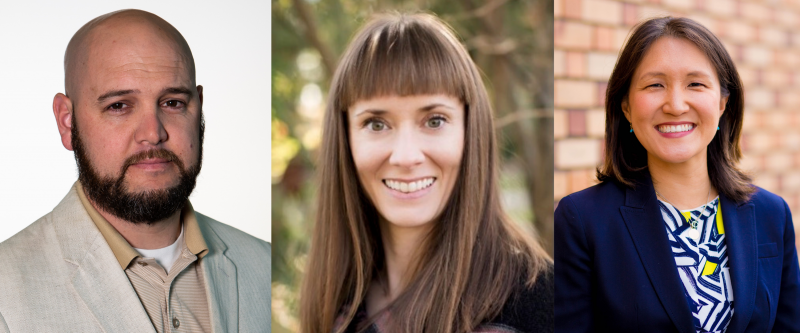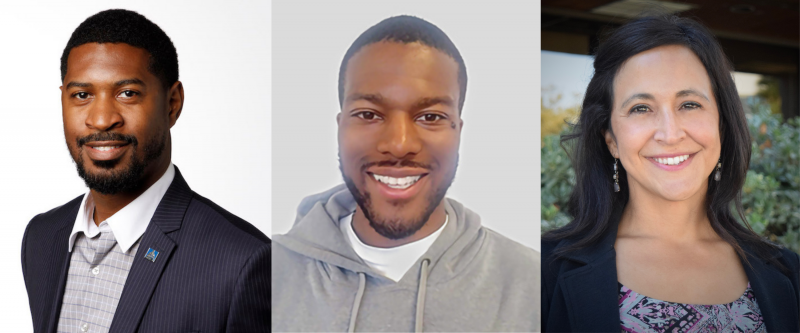Normal Was Never Good Enough

A three-part conversation series inspired by the Restorative Restart: The Path Towards Reimagining and Rebuilding Schools Report. Designed for all K-12 school and district leaders who want to focus on research-based considerations for a restorative restart in the fall.
Each conversation features co-hosts Professor Janet Carlson and Christine Bywater as well as experts and visionaries to speak towards reimagining a transformative, restorative, and equitable restart.
Schools are irreplaceable—not just as places of learning, but as resource hubs that provide connections and opportunities for youth and families beyond classroom instruction. When schools across the nation closed their doors and went online in response to the spread of COVID-19, many students and their families lost access to this critical resource. As we recover from a public health and education crisis, we need to build a system that operates equitably. With the record amount of state and federal funding flowing to school districts and local government, we have a critical window of opportunity to help communities restart and recover from the pandemic. We must transform schools by taking a restorative, whole-child approach that centers students, families, and educators as equal partners in shaping a new pathway forward.

Episode 1 | Reimagine and Rebuild—Centering Relationships for a Restorative Restart | May 11
The pandemic has exposed long-standing systemic inequities in education and has cost lives and livelihoods in families already vulnerable and on the edge. School staff have also experienced greater stress and burnout this year. As schools complete the year, a major infusion of funding has opened the door to new possibilities. As we recover, we must build toward an education system that places equity and relationships at the center. In the first conversation of a 3 part series, we will discuss how the rebuilding and recovery should begin and the actions districts and school leaders can take to prioritize building and nurturing relationships among students, families, and educators.
Our guests:
- Reimagine and Rebuild California Schools Restarting School with Equity at the Center (Heather Hough)
- Imagine the Angels of Bread (Guthrie Fleishman)
- We Teach For Children (originally a poem by Ina Hughes titled "We Pray For Children" adapted by Guthrie Fleishman)

Episode 2 | Healing Teachers In Service of Equitable Student Learning | May 18
As school districts make plans for safely reopening schools in the fall and helping students cope with their trauma, it is urgent that school and district leaders recognize and make space for teachers to process and heal from their own feelings of loss and grief. Nearly every teacher we work with puts their emotional needs aside in order to address the emotional needs of their students when tragedy inevitably occurs in our schools. That capacity to harness deep empathy for others is one of the most admirable characteristics of teachers. In the wake of the pandemic, racial unrest, and economic turmoil, we must be cognizant that this characteristic also has the potential to be deeply damaging for teachers’ mental health in the long run without support. Concern for student wellbeing and trauma is frequently brought up right now, but if we fail to provide the same empathy for teachers, we won’t be setting anyone up for success. In order for educators to be healthy, whole, and compassionate in their work with students and families, self-care must be a priority. In the second conversation of a 3 part series, we’ll discuss why and how districts must create time and space for educators to practice self-care.

Episode 3 | Learning Leads; Technology Serves: Promoting Student Agency, Authority, and Identity | June 1
Over the past year and a half districts have made substantial investments in technology infrastructure to respond to schooling during a pandemic. However, this is not the first time in educational history that schools have invested in technology in an attempt to address an educational dilemma. Time and time again, school districts have made investments in technological tools in the hopes they will solve a persistent problem of practice and will finally result in equitable teaching and learning for all. Unfortunately, all too often, conversations about educational technology are driven by the platform or device and promise quick fixes to long standing educational problems. With the return to in-person teaching, coupled with the improved infrastructure and increased funds available to districts, we need to leverage this time to resist a return to what was in the way we think about educational technology. In our final conversation of our three-part series we will discuss how technology can be used in service of student-centered learning and what schools and districts can do to create a sustainable approach to instructional technology that promotes student agency, interest-driven learning environments, and professional growth in teachers. Join us as we have a conversation about ways to let learning lead and the technology serve as we reimagine and rebuild a more just and equitable schooling system.
Mentioned in the episode:
Other resources suggested by guests:
This work is supported by Stanford’s Transforming Learning Accelerator, an initiative born out of Stanford's Long-Range Vision, and the Graduate School of Education.


